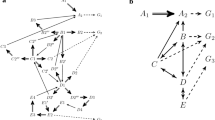Abstract
In this paper, we present ISOR, a Case-Based Reasoning system for long-term therapy support in the endocrine domain and in psychiatry. ISOR performs typical therapeutic tasks, such as computing initial therapies, initial dose recommendations, and dose updates. Apart from these tasks ISOR deals especially with situations where therapies become ineffective. Causes for inefficacy have to be found and better therapy recommendations should be computed. In addition to the typical Case-Based Reasoning knowledge, namely former already solved cases, ISOR uses further knowledge forms, especially medical histories of query patients themselves and prototypical cases (prototypes). Furthermore, the knowledge base consists of therapies, conflicts, instructions etc. So, retrieval does not only provide former similar cases but different forms and steps of retrieval are performed, while adaptation occurs as an interactive dialog with the user. Since therapy inefficacy can be caused by various circumstances, we propose searching for former similar cases to get ideas about probable reasons that subsequently should be carefully investigated. We show that ISOR is able to successfully support such investigations.
Access this chapter
Tax calculation will be finalised at checkout
Purchases are for personal use only
Preview
Unable to display preview. Download preview PDF.
Similar content being viewed by others
References
Marling, C., Whitehouse, P.: Case-Based Reasoning in the care of Alzheimer’s disease patients. In: Aha, D.W., Watson, I. (eds.): Case-Based Reasoning Research and Development, Springer Berlin (2001) 702–715
Bichindaritz, I.: A case-based assistant for clinical psychiatry expertise. Journal of the American Medical Informatics Association, Symposium Supplement (1994) 673–677
Hirschfeld, R.M., et al.: Partial response and nonresponse to antidepressant therapy: current approaches and treatment options. J Clin Psychiatry 63(9) (2002) 826–37
Barbee, J.G., Jamhour, N.J.: Lamotrigine as an augmentation agent in treatment-resistant depression. J Clin Psychiatry 63(8) (2002) 737–41
Lam, R.W., Wan, D.D., Cohen, N.L., Kennedy, S.H.: Combining antidepressants for treatment-resistant depression: a review. J Clin Psychiatry 63(8) (2002) 685–93.
Keitner, G.I., Posternak, M.A., Ryan, C.E.: How many subjects with major depressive disorder meet eligibility requirements of an antidepressant efficacy trial? J Clin Psychiatry 64(9) (2003) 1091–3
Cuffel, B.J., et al.: Remission, residual symptoms, and nonresponse in the usual treatment of major depression in managed clinical practice. J Clin Psychiatry 64(4) (2003) 397–402
Alacorn, R.D., Glover, S., Boyer, W., Balon, R.: Proposing an algorithm for the pharmacological treatment of posttraumatic stress disorder. Ann Clin Psychiatry 12(4) (2000) 239–246
Expert Consensus Guideline Series Treatment of Posttraumatic Stress Dosorder. J Clin Psychiatry 60(suppl 16) (2000) 1–76.
Osser, D.N., Patterson, R.D.: Algorithms for the pharmacotherapy of depression, parts one and two. Directions in Psychiatry 18 (1998) 303–334
Schmidt, R., Gierl, L.: Case-based Reasoning for Antibiotics Therapy Advice: An Investigation of Retrieval Algorithms and Prototypes. Artificial Intelligence in Medicine 23(2) (2001) 171–186
Vorobieva, O., Gierl, L., Schmidt, R.: Case-based Adaptation in Medicine-Focusing on Hypothyroidism. In: Lees, B. (ed.): UK-Workshop on Case-based Reasoning (2002) 61–68
Working group for paediatric endocrinology of the German society for endocrinology and of the German society for children and youth medicine (1998) 1–15
Tversky, A.: Features of similarity. Psychological review 84 (1977) 327–352
Hampel, R.: Diagnostik und Therapie von Schilddrüsenfunktionsstörungen. UNI-MED Bremen (2000)
DeGroot, L.J.: Thyroid Physiology and Hypothyroidsm. In: Besser GM, Turner M, editors. Clinical endocrinilogy. Wolfe, London (1994) Chapter 15.
Ma, J., Knight, B. A.: Framework for Historical Case-Based Reasoning. 5th International Conference on Case-Based Reasoning, Springer Berlin (2003) 246–260
Davidson, R.J.: Cerebral asymmetry and affective disorders: A developmentalperspective. In: Cicchetti, D., Toth, S.L. (eds.) Internalizing and externalizing expressions of dysfunction. Rochester Symp. on Developmental Psychopathology 2, Hillsdale (1991) 123–133
Flor-Henry, P.: Cerebral Basis of Psychopathology. John Wright. PSG.Inc. Boston, Bristol, London (1983)
Leonhard, K.: The Classification of the Endogenous Psychoses. John Wiley & Sons, New York (1979)
Tucker, D.M., Liotti, M.: Neuropsychological mechanisms of anxiety and depression. In: Boiler, F., Grafman, J. (eds.): Handbook of Neuropsychology, Vol. 3. Elsevier, Amsterdam (1989) 443–456
Gelder, M.G., Lopez-Ibor, U., Andeasen, N.C. (eds.): New Oxford Textbook of Psychiatry. Oxford University Press, Oxford (2000)
htp://mhc.com/Algorithms/Depression
Stein, M.B.: Attending to anxiety disorders in primary care. J Clin Psychiatry 64(suppl 15) (2003) 35–39
Kalinowsky, L., Hippius, H.: Pharmacolological, convulsive and other somatic treatments in psychiatry. Grunee&Stratton, New York London (1969).
Author information
Authors and Affiliations
Editor information
Editors and Affiliations
Rights and permissions
Copyright information
© 2006 Springer-Verlag London Limited
About this paper
Cite this paper
Schmidt, R., Vorobieva, O. (2006). Case-Based Reasoning Investigation of Therapy Inefficacy. In: Macintosh, A., Ellis, R., Allen, T. (eds) Applications and Innovations in Intelligent Systems XIII. SGAI 2005. Springer, London. https://doi.org/10.1007/1-84628-224-1_2
Download citation
DOI: https://doi.org/10.1007/1-84628-224-1_2
Publisher Name: Springer, London
Print ISBN: 978-1-84628-223-2
Online ISBN: 978-1-84628-224-9
eBook Packages: Computer ScienceComputer Science (R0)




